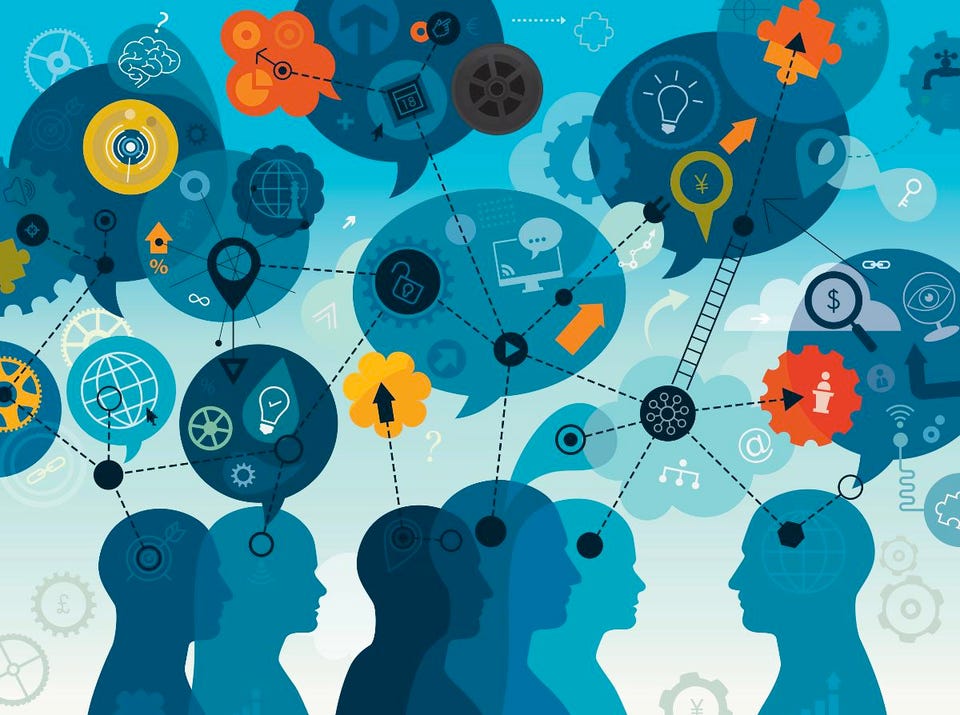Innovation Live and Learn Rich Karlgaard Forbes Staff I celebrate innovation and growth. Following New! Follow this author to stay notified about their latest stories. Got it! Sep 11, 2022, 10:34pm EDT | New! Click on the conversation bubble to join the conversation Got it! This story appears in the September 2022 issue of Forbes Asia.
Subscribe to Forbes Asia Share to Facebook Share to Twitter Share to Linkedin erhui1979/getty images Now in its 20th year, the Forbes Global CEO Conference will be held Sept. 26-27 in Singapore. The Way Forward is this year’s theme.
Good timing! The global economy is at a crossroads. One road points to an exciting new era of prosperity and inclusion, with life-changing improvements in widespread availability of healthcare, education, transportation, housing—and, critically, access to capital and opportunity. The other fork points to a dark place: economic stagnation, social instability, geopolitical turmoil, more energy and climate uncertainty, and persistent barriers to healthcare, education and opportunity.
Nearly all of us would choose the first road—let’s call it the path to sustainable prosperity. The challenge for leaders in business, investment, academia and government is to move decisively in that direction and avoid false paths and dead ends. To do that, we must start with an honest assessment of where we find ourselves today.
This advice especially applies to Asia-Pacific, home to China, the world’s second-largest economy, plus five more, each with over $1 trillion in GDP: Australia, Japan, Korea, India and Indonesia. We begin with the Covid-19 pandemic. It has caused nearly 7 million deaths and trillions in economic damage as of June 30—and hit Asia first and arguably the hardest worldwide.
While the peak danger appears to be over, the pandemic has not yet settled into predictable seasonal patterns, which creates lingering uncertainty. Another uncertainty is a level of inflation not seen since the 1970s. Add to that, supply disruptions, including semiconductors that drive 21st century innovation.
And finally, labor shortages, which prevail in all developed countries around the world. Asia-Pacific’s varied economies, from developed to emerging, feel the pain of these in different ways. The longer-term challenge remains what it was before Covid: Today’s global population of 8 billion is projected (by the United Nations and other sources) to become 9.
5 billion by 2050—much of that growth coming from Asia. Average global temperatures are expected to rise 1 to 1. 5 degrees centigrade over that period.
The world is becoming hotter and more crowded. Covid has not altered this longer term forecast. MORE FOR YOU Google Issues Warning For 2 Billion Chrome Users Forget The MacBook Pro, Apple Has Bigger Plans Google Discounts Pixel 6, Nest & Pixel Buds In Limited-Time Sale Event The tasks for business, financial and political leaders are not trivial—both now and for the future.
The paths to sustainable prosperity are not as clear as idealists would have us believe. Take energy. Prosperity (and peace) depend on it—the more, the better.
Hope is not a strategy. We also need insights to move forward—in terms of knowledge, tools, management practices, leadership skills—to get on the path to sustainable prosperity. It all comes down to learning.
Do you know that the average person in the world is about five times richer today than in 1950? (The tremendous strides in growth in China, Japan and Indonesia had an outsized contribution to these figures. ) Back then, the global population was 2. 5 billion, less than a third of today’s 8 billion.
We humans have a remarkable ability to create more net resources and wealth than we consume. There is only one explanation for this entropy-defeating miracle. It is learning.
As Steve Forbes likes to say, what separates humans today from 1950 or 1650 can be stated in three simple words: We know more . Two hundred years ago, no one knew that fuel could be extracted from buried rocks, or that this fuel would replace horses and steam as transportation energy. No one knew the speed of light, or how to increase crop yields or even filter water.
For the most part, no one knew what made people sick. If the global economy today is at a crossroads—and it is—the only path forward goes through accelerated learning. In order to solve today’s largest problems and create new foundations for sustainable prosperity, we must have more people in the world, credentialed or not, who know more, learn faster, and apply and spread their knowledge—thus creating a feedback loop of accelerated learning for all.
Asia’s role in this process will be critical for the global economy. Learning is the whole game, dear readers. It is our salvation and hope.
I believe learning will be the global growth industry of the next two decades. As Steve Forbes says at the top of his Fact & Comment column : “With all thy getting, get understanding. ” Wise words.
Send me a secure tip . Rich Karlgaard Editorial Standards Print Reprints & Permissions.
From: forbes
URL: https://www.forbes.com/sites/richkarlgaard/2022/09/11/live-and-learn/



